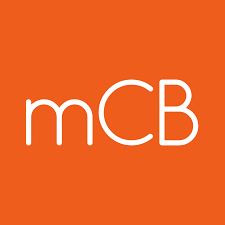
Logging Out: Preparing for Your Digital End of Life
A Guide for Canadian Seniors and Their Caregivers
- Digital legacies matter: Canadians now manage extensive online accounts, passwords, and cloud-stored memories, making digital estate planning as important as traditional wills.
- Planning steps: Create a digital inventory, manage passwords, designate a tech-savvy executor, and set up platform-specific legacy options.
- Legal and practical concerns: Laws vary by province, seniors are vulnerable to fraud, and proactive planning with conversations, resources, and legal guidance ensures families can access and protect digital assets.
Read Time: 9 minutes
Thirty years ago, “clearing out someone’s belongings” meant sorting through photo albums, filing cabinets, and maybe a few floppy disks. Today, our digital lives span dozens of platforms, hundreds of passwords, and countless precious memories stored in the cloud. For Canadian families, preparing for digital end-of-life has become as important as writing a traditional will.
This isn’t about being morbid—it’s about being thoughtful. By taking control of your digital legacy now, you’re giving your loved ones a tremendous gift: the ability to honor your memory without the frustration of locked accounts and forgotten passwords.
Your Digital Footprint: Then vs. Now
The transformation has been remarkable. In 1995, most Canadians had:
- No internet access at home (only 37% of Canadians were online by 1999)
- Maybe a basic email account at work or school
- Personal computers used mainly for word processing and simple games
- Physical photo albums, paper documents, and handwritten letters
- All banking done in person or by phone
Fast-forward to 2025, and the average Canadian now has:
- Email: Multiple accounts across Gmail, Outlook, Rogers, Telus, Bell, and other providers, often containing decades of correspondence and important documents.
- Social Media: Facebook profiles with years of family photos, Instagram and Tik Tok accounts, and LinkedIn professional networks.
- Streaming Services: Netflix, Amazon Prime Video, Crave, Disney+, Apple TV+, and Spotify subscriptions—each with personalized playlists and viewing histories.
- Memberships: Costco online accounts, Canadian Tire Triangle Rewards, Shoppers Optimum, Aeroplan, subscription boxes, and countless loyalty programs storing points and purchase history.
- Websites: Amazon accounts with saved payment methods, online newspaper subscriptions (Globe and Mail, local papers), hobby forums, genealogy sites like Ancestry.ca, and specialized interest communities.
- Cloud Storage: Thousands of family photos, important documents, videos, and memories stored on iCloud, Google Drive, Dropbox, and OneDrive—often the only copies that exist.
- Finances: Online banking and investment accounts with major banks, credit unions, or online platforms like Questrade, Tangerine or Wealthsimple, PayPal accounts.
- Healthcare: Provincial health portals , telehealth accounts, Shoppers Drug Mart pharmacy apps, and fitness tracking data.
- Devices: Cellphones storing contacts and messages, iPads with family video calls, smart TVs with personalized settings, and increasingly, smart home devices that control everything from thermostats to security systems.
- Passwords/Access: The average Canadian now manages 200+ login credentials, two-factor authentication apps, and security questions spanning decades of digital life.¹
Taking Inventory of Your Current Digital Life
Start with a simple approach. According to Statistics Canada’s 2022 data, 82.6% of Canadian seniors (those aged 65 years and older) used the Internet in 2022, up 6.3 percentage points from 2020, making digital estate planning increasingly essential for Canadian families.¹
Create a basic inventory using these categories:
Essential Accounts:
- Primary email address and any secondary accounts
- Online banking (check all financial institutions you’ve used)
- Government accounts: Canada Revenue Agency (CRA) My Account, Employment Insurance online, provincial health portals
Financial and Shopping:
- Bank and Investment accounts and robo-advisors
- Credit card accounts
- PayPal, e-transfer services
- Major shopping sites (Amazon, Canadian Tire, etc.)
- Subscription services with automatic payments (Netflix, etc.)
- Loyalty programs such as Optimum, Aeroplan, etc.
Personal and Family:
- Cloud storage containing photos and documents
- Streaming services with family profiles
- Communication apps (WhatsApp, Skype, FaceTime)
- Social media platforms where you’re active
- Any websites or forums where you’re an active member
Healthcare and Services:
- Provincial health portals and telehealth accounts
- Pharmacy apps and prescription services
- Insurance company portals
- Utility company accounts
Don’t try to complete this in one sitting. Most families find it takes several weeks to fully catalog their digital presence.
Research indicates that only about one-third of Canadians have an up-to-date will, and digital assets are rarely properly accounted for in estate planning.⁵ For many Canadian families, this means precious digital memories and valuable online accounts could be lost forever.
Essential Steps to Secure Your Digital Legacy
Password Management
Recent research shows that the average person now manages 168 personal passwords, nearly a 70% increase from just a few years ago.² For Canadian seniors, password security is particularly challenging, with studies showing that Canadians have the highest tendency for password reuse globally, averaging 15 reuses per password.³
Create a master list that includes:
- Website or service name
- Username or email used
- Whether two-factor authentication is enabled
- Recovery email addresses
- Security questions and answers
Digital Asset Inventory
Beyond passwords, document what matters most to your family:
- Photo collections and their locations
- Important documents stored digitally
- Subscriptions that should be canceled
- Accounts with monetary value (loyalty points, unused gift cards)
- Social media accounts and your wishes for them
Platform-Specific Legacy Options
Major platforms offer different options:
- Google: Legacy Contact feature allows designated people to access your account
- Facebook/Meta: Memorial accounts or account deletion options
- Apple: Digital Legacy Contact can access your iCloud account
- Microsoft: Next of Kin process for Outlook and OneDrive
Set these up proactively—they’re much harder to navigate after the fact.
Important Legal Considerations for Canadians
Digital estate laws vary significantly across Canadian provinces, and the legal landscape is still evolving. Unlike physical assets, digital assets are often governed by complex terms of service agreements that can override traditional inheritance laws.
The Personal Information Protection and Electronic Documents Act (PIPEDA) protects digital privacy but can create challenges for family members trying to access accounts. Some provinces, like British Columbia and Alberta, have updated their estate laws to address digital assets, while others rely on older legislation that doesn’t explicitly cover digital property.
Consider consulting with an estate lawyer familiar with digital assets, especially if you have significant online investments, cryptocurrency, or business accounts. They can help ensure your digital wishes are legally enforceable and properly integrated with your overall estate plan.
Privacy concerns under Canadian law mean that even family members may face restrictions accessing certain accounts without proper legal documentation. This makes advance planning even more critical for Canadian families.
Practical Tips for Canadian Families
It’s time for having “that conversation.” Many adult children find it challenging to broach this topic with aging parents. Start gently:
- Frame it as protecting family memories, not preparing for death
- Share your own digital organization efforts
- Offer to help with the technical aspects
- Emphasize the peace of mind it provides
What Caregivers Need to Know
Canadian seniors face particular vulnerability to online fraud and scams. According to the Canadian Anti-Fraud Centre, in 2024 there were 49,432 reports of fraud with $638 million lost, and fraud is now the number one crime against older Canadians.6 Seniors are often targeted because scammers perceive them as having more wealth and being less familiar with digital technologies.
Watch for these warning signs that immediate digital planning is needed:
- Forgotten passwords leading to locked accounts
- Multiple failed login attempts
- Confusion about online subscriptions or automatic payments
- Difficulty managing two-factor authentication
- Concerns about online scams or fraud
- Reports of suspicious phone calls or emails requesting personal information
The combination of increasing digital complexity and seniors’ vulnerability to scams makes proactive digital estate planning especially critical for Canadian families.
Here are some resources for support:
- The Canadian Association of Retired Persons (CARP) offers digital literacy resources
- Provincial seniors’ services often provide technology support
- Local libraries frequently offer digital skills workshops for seniors
- The Canadian Anti-Fraud Centre provides resources for online safety and fraud prevention
- Get Cyber Safe (a national public awareness campaign) offers practical guides on avoiding cyber scams
Digital estate planning isn’t about technology—it’s about love and protection. By organizing your digital life now, you’re ensuring that your family’s focus can be on grieving and celebrating your life, not wrestling with forgotten passwords and locked accounts, or dealing with potential fraud vulnerabilities that could compromise your legacy.
Start small, be patient with yourself, and remember that any planning is better than none. Your family will thank you for this thoughtful gift, and you’ll have peace of mind knowing your digital legacy is secure.
The goal isn’t perfection—it’s preparation. In a world where our most precious memories live in the cloud, taking control of your digital end-of-life is one of the most caring things you can do for the people you love.
Sources:
- Statistics Canada, Canadian Internet Use Survey, 2022 – “Canadian seniors more connected than ever“
- NordPass, “How many passwords does the average person have?” 2024
- EarthWeb, “Password Reuse Statistics 2024: 65% of People…“
- AllAboutCookies, “The Best Password Managers for Seniors 2025“
- RBC Wealth Management, “Redefining your estate in the digital age” November 2023
- North Shore News, “Older and Wiser: Protect yourself against fraud and scams” 2024
